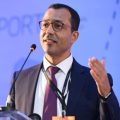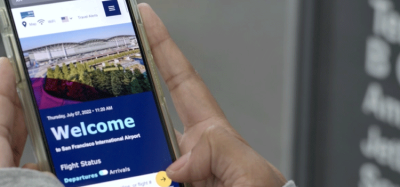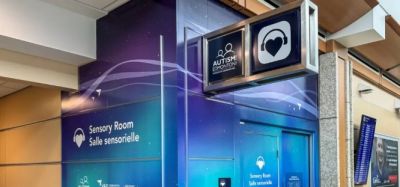Interview with Luis Felipe de Oliveira, Director General of ACI World
- Like
- Digg
- Del
- Tumblr
- VKontakte
- Buffer
- Love This
- Odnoklassniki
- Meneame
- Blogger
- Amazon
- Yahoo Mail
- Gmail
- AOL
- Newsvine
- HackerNews
- Evernote
- MySpace
- Mail.ru
- Viadeo
- Line
- Comments
- Yummly
- SMS
- Viber
- Telegram
- Subscribe
- Skype
- Facebook Messenger
- Kakao
- LiveJournal
- Yammer
- Edgar
- Fintel
- Mix
- Instapaper
- Copy Link
Posted: 1 March 2021 | Fethi Chebil | 2 comments
In this video, Luis Felipe de Oliveira, Director General of ACI World, is interviewed by Fethi Chebil, Airport PPP Expert. Together, they discuss the impact of the COVID-19 pandemic on the global airport business; the restart and recovery of the industry post-pandemic; the ACI World Airport Health Accreditation; health passports; the COVID-19 vaccination; touchless technology; and seamless travel.
In this video interview, Fethi Chebil, Airport Public Private Partnership (PPP) Expert, speaks with Luis Felipe de Oliveira, Director General of Airports Council International (ACI) World and International Airport Review Advisory Board Member.
During the interview, Chebil and de Oliveira reflect on the past year, which was such an unprecedented time for aviation. By the end of 2020, the aviation industry had lost six billion passengers globally, representing a fall of 65 per cent, which was reflected in a huge loss of $112 billion for the industry.
Together, the two also discuss the ICAO Council Aviation Recovery Task Force (CART) ‘Take-off’ Guidance, with de Oliveira saying that ACI World works very close with ICAO to discuss the measures that need to be implemented in their member airports to guarantee a harmonised system and bring passengers back to airports and air traffic back to our skies.
Health passports
De Oliveira is evidently very positive about the possibility of health passports, but the main concern for ACI is interoperability, as passengers cannot be expected to need a different mobile application for each destination, as this would cause confusion not only for passengers, but governments, as well. He highlighted that many people in the world still do not own a mobile phone, so the industry may have to continue with the use of paper certificates, in order to avoid creating another barrier between people and travel. Flexibility is needed for health passports to be presented on paper and through apps.
There are said to be a select few companies who are trying to make money on health passports, so the industry needs to focus on the International Air Transport Association’s (IATA) Travel Pass, as well as others that are leading in the industry. De Oliveira said that ACI World are supporting governments to implement the measures needed to accept the health passports.
Chebil questions de Oliveira on why ACI World has not implemented its own health passport, to which de Oliveira replies that working together as an industry to tackle the virus means supporting solutions in the market regardless of whether they have the ACI World logo on them.
Industry recovery
Together, they discussed the market outlook for the 2021 and 2022 recovery. The actions made by governments around the globe are very unstable due to the effects of the second wave and the various mutations of the virus. De Oliveira believes that vaccines will make a difference in developed countries, but in countries with less wealth, the vaccines will take longer to arrive and, therefore, longer to take effect.
“The world needs aviation to connect, to transport goods and people, to connect us with friends and family, to do business – and that will never change”
De Oliveira stated that, over the next two years, he expects that countries will allow people to travel internationally with a combination of COVID-19 tests and vaccination passports. He mentioned that we are already seeing recovery on domestic markets in countries such as China and Russia, noting that big markets with only one health authority have a smoother time coordinating the COVID-19 approach, which makes a difference in how their domestic markets are reacting. However, international travel markets will be slower to recover and, even with a vaccine, we will not see borders reopening immediately.
According to de Oliveira, 2021 will be a very tough year for the industry, but it will also be the start of its recovery. He said: “The world needs aviation to connect, to transport goods and people, to connect us with friends and family, to do business – and that will never change.”
What the future holds
Despite the slow recovery, the Director General’s outlook remains positive, and he believes that the second part of 2021 will be a turning point for the industry, with coordination between nations and the roll out of the vaccine.
Once we reach pre-pandemic levels of passengers, he thinks that aviation will continue to grow, with China emerging as a leading country in aviation. We will also be seeing a lot of growth in the aviation markets of developing countries in the next few years.
Chebil questioned de Oliveira on the future role of ACI World within aviation. In this crisis, the state-owned airports have had direct support from their governments. He says that we have seen a lot of bailouts for airlines, but not much support for private sector airports.
Looking beyond the pandemic, de Oliveira thinks that the industry needs to focus on the environmental issues that we face in the future. He said: “The next step will be how we cope with net zero emissions by 2050 and how we can improve services and reduce our carbon footprint to respect international agreements and public opinion.”
Beyond the pandemic
De Oliveira said that safety is still a number one priority, but that aviation is already a very safe industry. He predicts that hygiene safety measures being implemented in airports will continue well into the future, saying that this will, unfortunately, not be the last pandemic, but the lessons learnt will continue to be implemented in order to be prepared for the future. Technology will play a key role in the future of aviation, and artificial intelligence (AI), biometrics and touchless processes will be very important in the future and will be expedited by the pandemic. Contact between passengers and airport staff needs to be reduced, and that will drive the future development of airports.




Related topics
Aeronautical revenue, Airport crisis management, Airside operations, Biometrics, Capacity, COVID-19, Emissions, New technologies, Passenger experience and seamless travel, Passenger volumes, Regulation and Legislation, Safety, Sustainability, Sustainable development, Terminal operations, Workforce
Related organisations
Airports Council International (ACI World), International Air Transport Association (IATA), International Civil Aviation Organization (ICAO)


















Extremely informative discourse. Effects of Covid and and future prospects of aviation industry explained very well.
Thank you Mamoon, we are glad you enjoyed it. Watch this space for more video interviews!